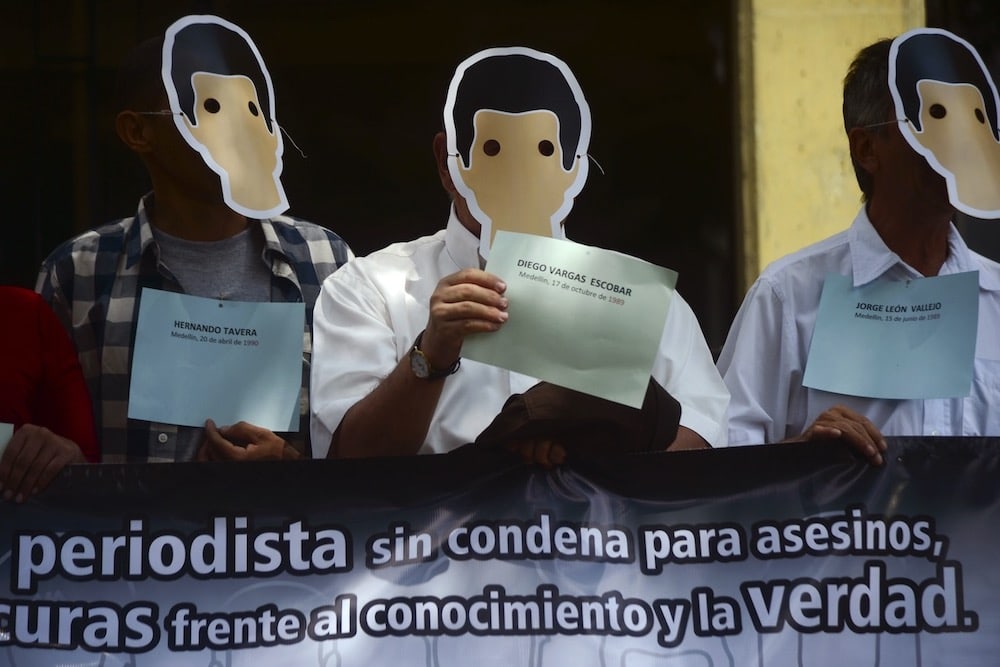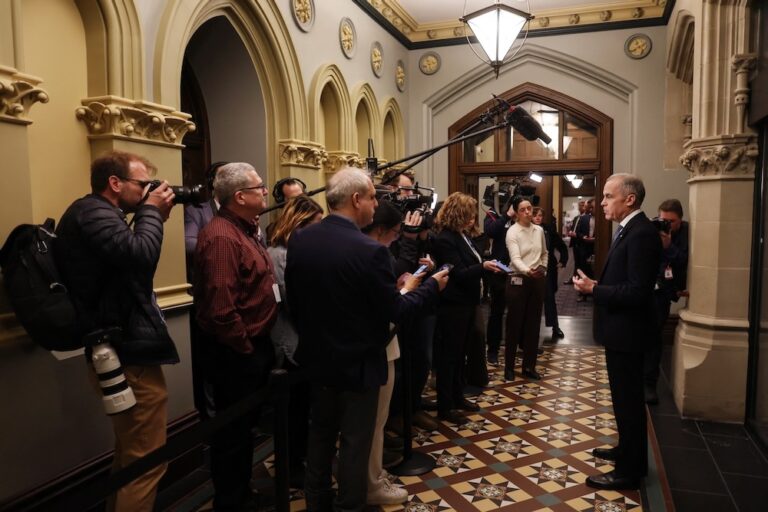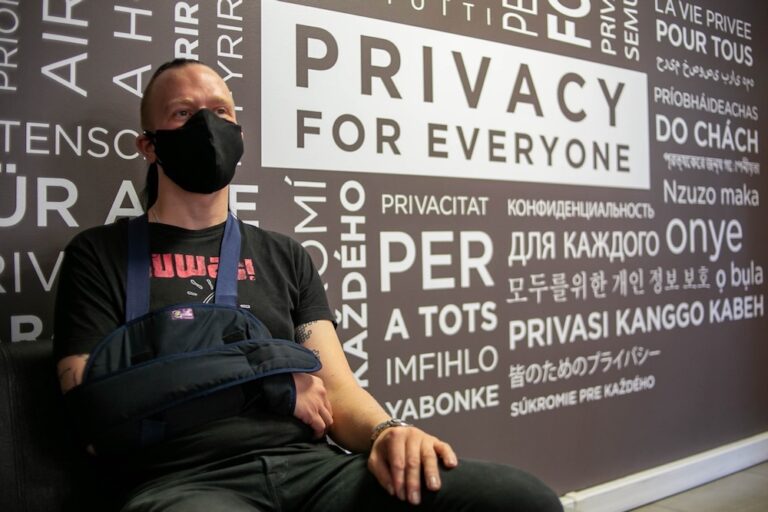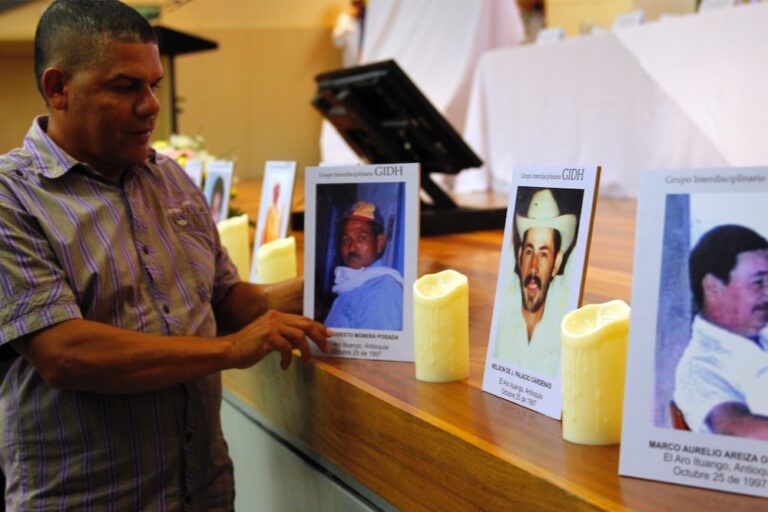"[While] press freedom faces growing challenges in the region, we reaffirm our unwavering commitment to the defense of freedom of expression and the right of society to be informed" - IAPA
This statement was originally published on en.sipiapa.org on 18 March 2024.
As part of its unwavering commitment to combat impunity in crimes perpetrated against journalists, the Inter American Press Association (IAPA) will launch today an initiative called “Voices Claiming Justice.” This initiative seeks to persist in the demand for justice and to keep alive the memory of the dozens of journalists murdered in Latin America over the last decades. The IAPA will release a statement every month on an emblematic case documented by the organization, demanding justice and paying homage to the journalist in question.
Andrea Mirada, chair of the IAPA’s Impunity Subcommittee and Director of Content and Digital Transformation at Debate Media in Sinaloa, Mexico, proposed to IAPA members that they dedicate a monthly space to remember and keep alive the memory of colleagues who lost their lives in the line of duty and whose cases remain unresolved in the justice system. To join the campaign, they can replicate the statement, write an article, a special report, an editorial, or dedicate a segment on their radio or television programs, among other formats, Miranda added.
“In a context where press freedom faces growing challenges in the region, we reaffirm our unwavering commitment to the defense of freedom of expression and the right of society to be informed,” explained Andrea Miranda.
The IAPA’s campaign begins with the reminder of the case of Colombian journalist and columnist Gerardo Bedoya Borrero. He was the Opinion section editor of El País newspaper in Cali, Valle del Cauca department, when he was murdered on March 20, 1997. Bedoya was known for denouncing and criticising the connections between military forces, political leaders, and drug traffickers, according to IAPA records.
In an investigation commissioned by the IAPA in 1999, journalist Ana Arana highlighted that in his columns, published biweekly, Bedoya “lashed out against the drug kingpins, who pretended to be upstanding civic leaders. He also thrashed those Caleños who buckled to the traffickers’ wishes. Bedoya was an expert wordsmith whose language – ironic and full of contempt – cut like a razor’s edge. He turned more daring every week. The column that cost him his life ran February 27, 1997. Three weeks later, on March 20, Bedoya was shot dead by a hired gunman in a dark street,” according to the IAPA investigation.
Bedoya was murdered as he was heading to his car after a visit to an apartment complex in Cali. A person approached him and shot him five times in the lower abdomen; he fell gravely wounded to the ground. The hitman fled on a motorcycle. Police reports disagreed on whether there was one or two killers. Investigators claimed that the crime was carried out by professional hitmen.
The initial official investigation was “plagued by half-truths and delays provoked by suspicious rumors,” attempting to unlink the murder from his professional work, attributing the motive to an alleged crime of passion, according to the IAPA investigation. The insinuations have directly influenced “the government’s investigation, slowing the proceedings and leaving the case in total impunity.”
In October 1997, Bedoya was posthumously awarded the Maria Moors Cabot Journalism Prize by Columbia University in New York, an award that honors excellence in Latin American journalism.
On September 23, 1999, the IAPA submitted the journalistic investigation of the case to the Inter-American Commission on Human Rights (IACHR). On September 30, 2019, in a public event and in the presence of his family members, Colombia acknowledged its international responsibility for the lack of investigation into Bedoya’s homicide, as part of a set of measures under the friendly settlement mechanism signed within the framework of the case before the IACHR.
The acknowledgment represented the beginning of the search for truth for the family, 23 years after his murder. On March 2, 2017, Colombia declared Bedoya’s murder a crime against humanity, implying the case’s non-prescription but not ensuring justice.
Until April 2020, the investigation remained in the evidence collection stage for over a decade, with no suspects being apprehended. Both the IAPA and the family have pointed out that due to the delays in the investigation, crucial leads were lost, hindering the progress of a fair and complete investigation.
Relatives of Bedoya, who keep his memory alive and demand justice, expressed the following in a written message addressed to the IAPA: “You were a learned person, you upheld the truth and that’s why they got rid of you. Twenty-seven years after your departure and with your crime unsolved, you will remain in our hearts.”
“Gerardo Bedoya Borrero will not be forgotten; his legacy drives us forward in our tireless pursuit of truth and justice for all journalists who are victims of lethal violence,” stated Carlos Jornet, chair of the IAPA’s Commission on Freedom of the Press and Information, and editorial director of La Voz del Interior newspaper in the province of Córdoba, Argentina.
The IAPA maintains its commitment to continue urging the State of Colombia to fulfill “its obligation to investigate, prosecute, and punish those responsible for the events, in order to establish the real motives surrounding the journalist’s homicide,” as established in the agreement reached on August 16, 2019.



